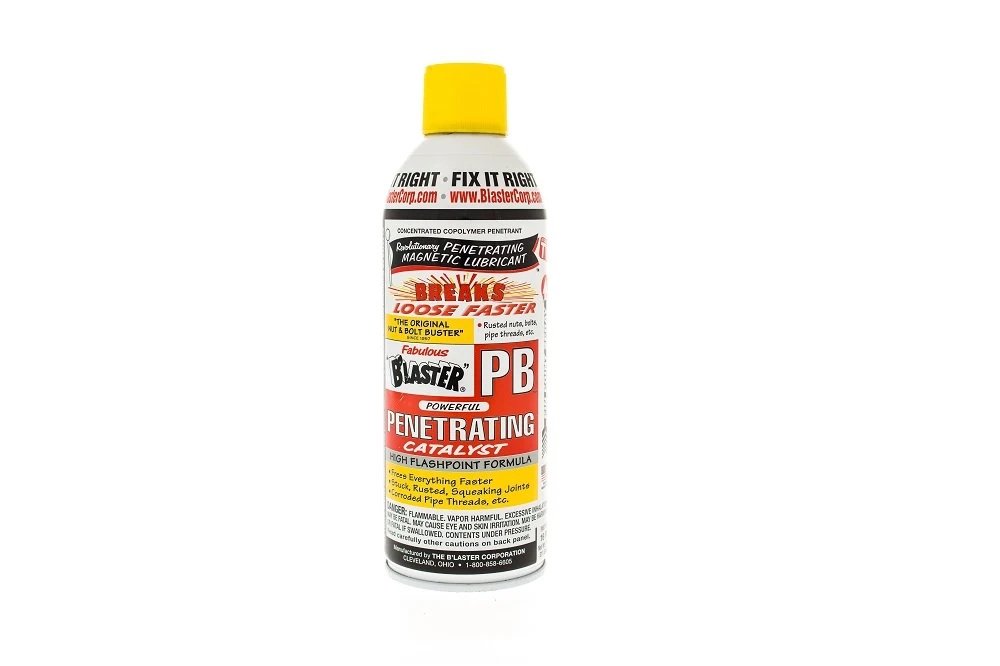When you buy through links on our site, we may earn an affiliate commission.
A good pair of hair clippers are key in shaping and styling hair. And part of their upkeep means using quality hair clipper oil.
But, what if hair clipper oil isn’t available for you? What are the alternatives to clipper oil that work?
Clipper oil is essential for the maintenance of the hair clipper. Clipper oil keeps the clipper’s blades from pulling and snagging on the hair. It also prevents friction from the blades rubbing together (too much heat from the friction is bad) and prevents rust.
Many men say the clipper oil that comes with the tool isn’t enough, so you may run out sooner than you thought.
For whatever reason, if you don’t have your regular hair clipper oil on hand or you’re just looking for alternatives that might work better, you’ll be happy to know there are several options!
Best Hair Clipper Oil Alternatives
Since you are looking for an alternative to the clipper oil that comes with the tool, there are some things to look for in the alternative:
- Thin substance. Thicker ones are prone to clogging, which means less oil is being distributed on the actual blades.
- It’s able to stand high temperatures. It’s normal for hair clippers to get hot because the two main parts are rubbing together, but you don’t want them to overheat, so it’s important to use an oil that can still keep the blades lubricated even if it’s subjected to a high temperature.
Here are some alternatives for hair clipper oil:
1. Baby Oil
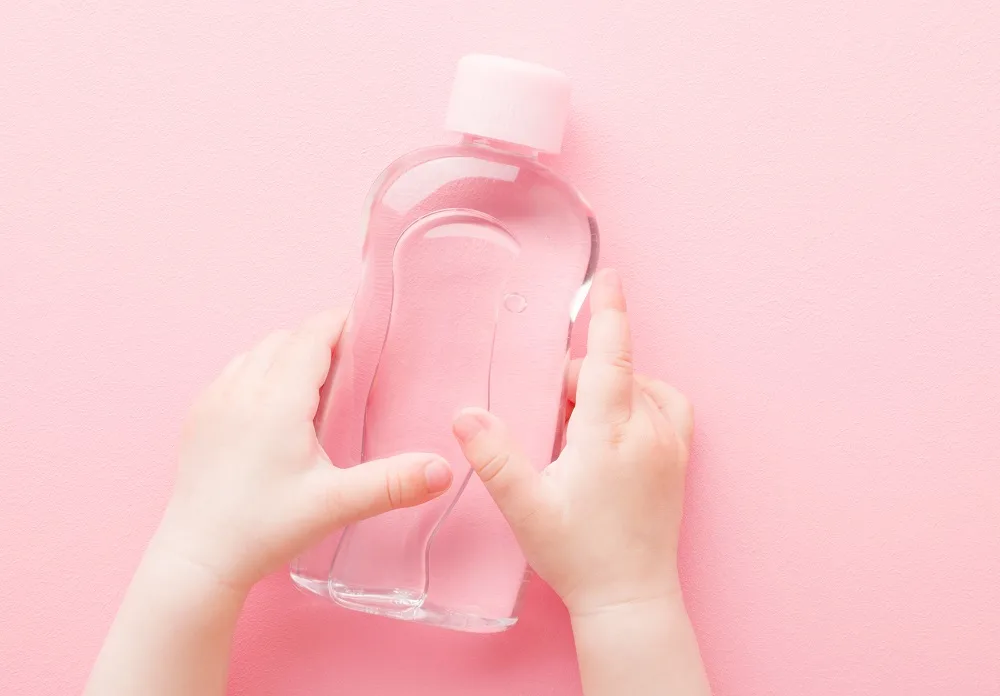
Clipper oil is 100% food-grade or white mineral oil. Basically, baby oil is highly purified mineral oil mixed with fragrance.
The key to a good clipper oil is choosing something that isn’t thick and can tolerate high temperatures with lubricating properties.
Both mineral oil and baby oil can withstand high heat and have low viscosity with lubricating properties. So baby oil is the best readily available at-home alternative for your hair clipper oil.
However, check the ingredients of your Baby oil as some brands may use other oil instead of white mineral oil.
2. Olive Oil
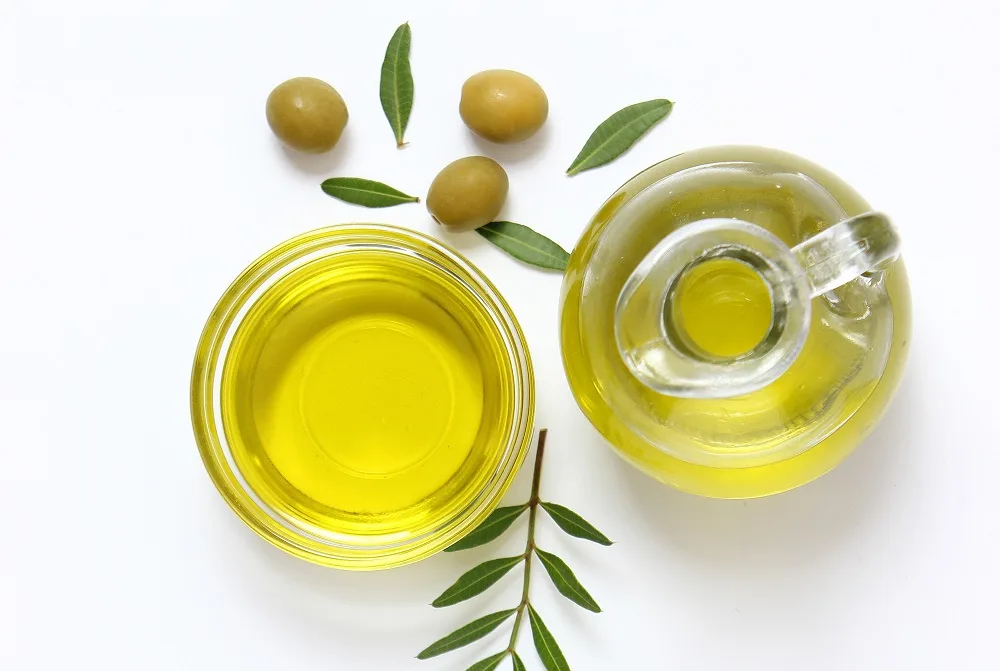
Olive oil can serve as an interim lubricant for hair clippers, as its smooth oil partially protects blades from friction and heat. But sticky oil residues trap hairs on the blade, prompting clogged, gunky buildup.
So, use olive oil sparingly by applying a very light coat on blades and carefully wipe away any excess oil before use.
It is better to use regular olive oil than extra virgin one on the clipper blade because the friction between the clipper blades generates heat and extra virgin olive oil can not withstand high heat.
3. PB B’laster
PB B’laster Penetrating Oil is known for its use in loosening rusted parts and providing lubrication in mechanical applications.
It’s not a traditional choice for hair clippers, but its penetrating qualities can help in maintaining the smooth operation of the blades.
However, its chemical composition might not be ideal for regular use on devices like hair clippers as PB B’laster can create irritation on the scalp and skin.
4. Coconut Oil
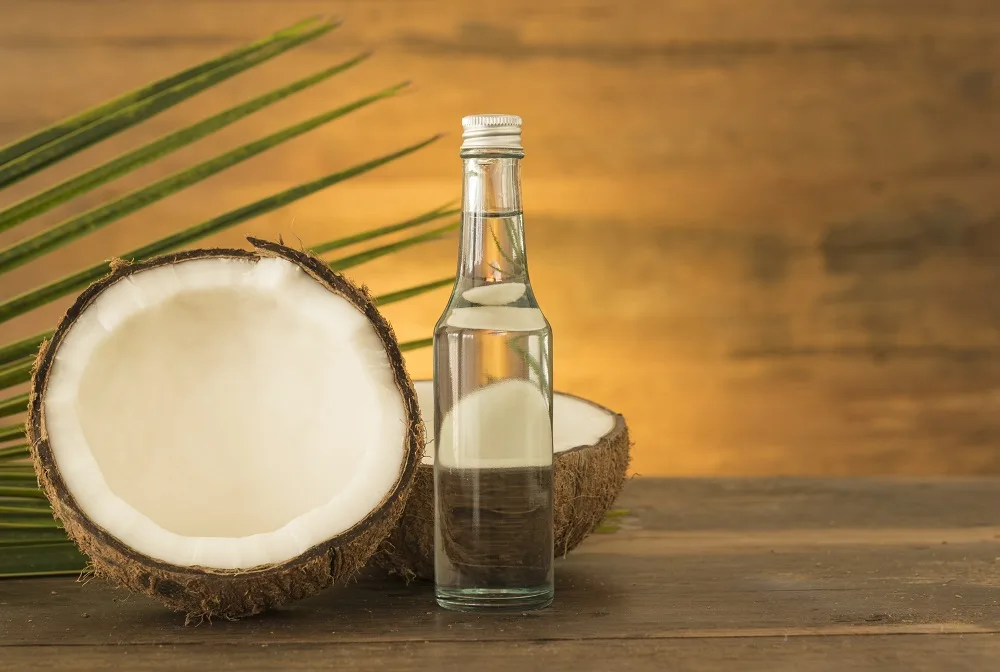
Coconut oil is a natural product and something many people have on hand. If you don’t have any other alternatives in hand, don’t hesitate to grab it and rub it a bit on your hair clippers.
But similar to olive oil, its thicker consistency might not be ideal for long-term maintenance of the clippers.
5. Singer All Purpose Machine Oil
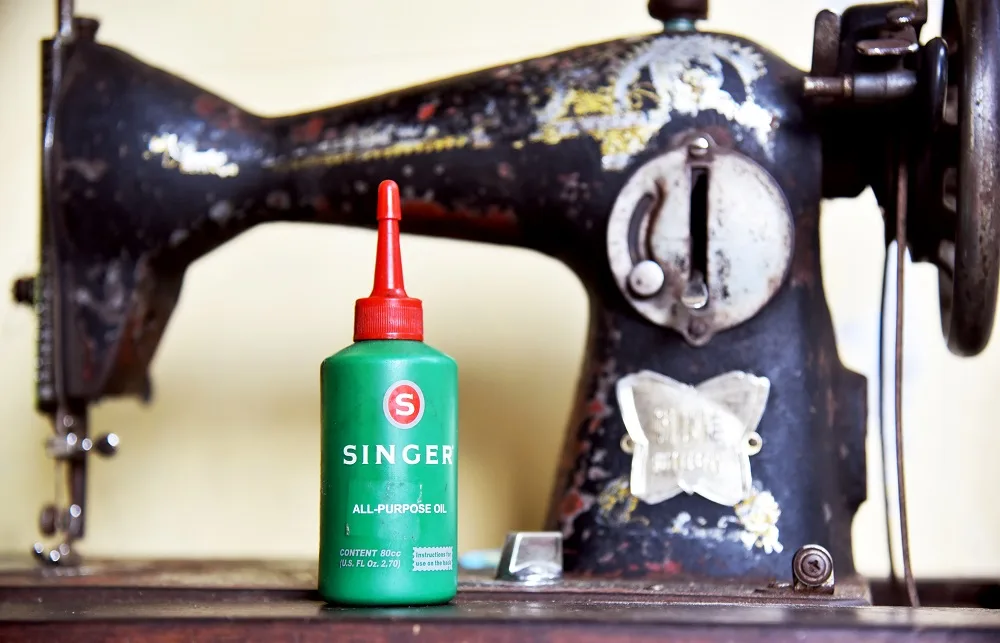
You probably recognize Singer from their sewing machines. Hairstylists commonly use singer oil as an alternative to hair clipper oil.
Singer machine oil is lightweight like the oil your clippers originally come with, and because this oil is used to work with fast machinery like sewing machines, it’s an excellent choice for your hair clippers.
6. Wahl Premium Hair Clipper Blade Lubricating Oil
Prices pulled from the Amazon Product Advertising API on:
Product prices and availability are accurate as of the date/time indicated and are subject to change. Any price and availability information displayed on [relevant Amazon Site(s), as applicable] at the time of purchase will apply to the purchase of this product.
Another commonly chosen alternative is Wahl’s clipper oil. You will have to apply it more often, but the cheap price makes it the best option available in the market.
The oil helps in reducing the friction between the blades gumming up or clogging the blades like household oils.
It’s recommended to apply a few drops of Wahl Clipper Oil to the blades before and after each use. This keeps the blades well-lubricated and clean.
All of the above alternatives will work smoothly with your hair clippers, maintain their effectiveness, and be safe for you should they touch your skin.
What Not to Use As Clipper Oil
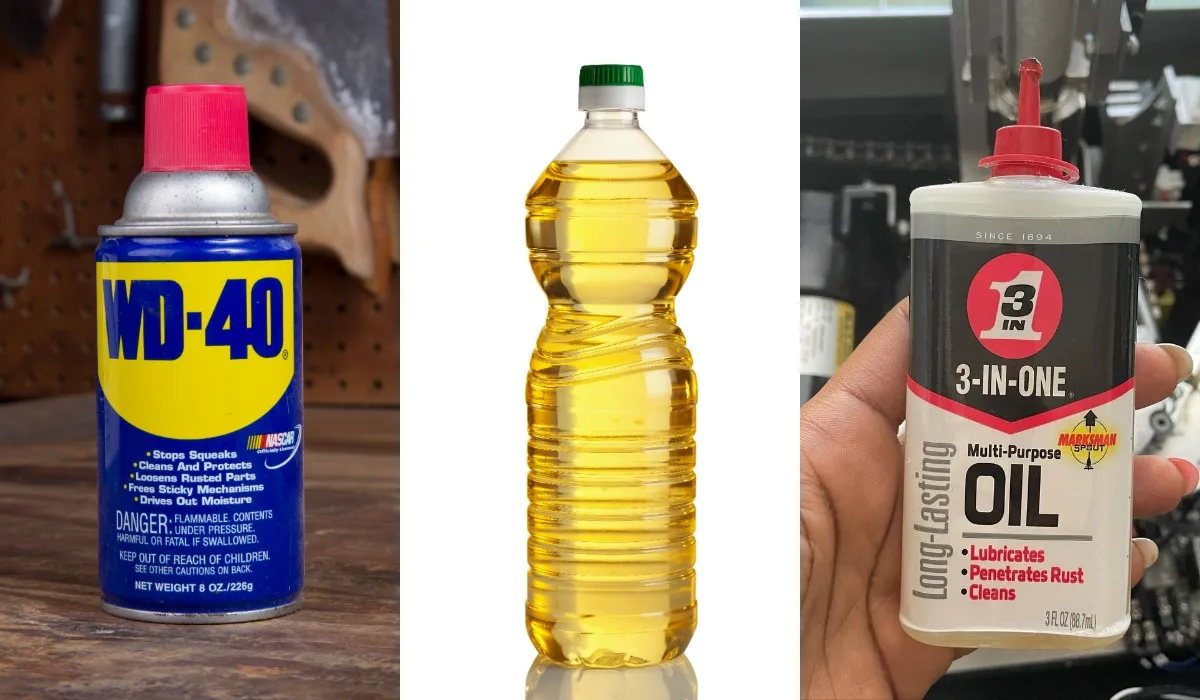
Just in case someone tries to steer you wrong or you read about another “hair clipper oil alternative” someone has had success with, It’s important to know that there are some products you should definitely not use. This may be because they’re damaging to the product, damaging to human skin, or they just generally aren’t ideal. These include:
1. WD40
There are many conflicting opinions floating around on the internet. For example, some people say they have had success using WD40 on their hair clippers, but most people say not to use it because it’s not a true oil since it has a water base.
The thin consistency of WD40 causes it to evaporate rapidly and it can penetrate the clipper housing, potentially leading to malfunctions. So it is better not to use it.
2. Vegetable Oil
Though you can use coconut oil and olive oil sparingly as a alternative of hair clipper oil, if you can avoid it, don’t use it!
Vegetable oil is too thick for your hair clippers, and some people have actually experienced the hair sticking to the blade, making it difficult to clean. Its poor heat conductivity also leads to excess friction and oxidation.
3. Motor Oil or Grease
This type of oil is intended for use on tools and equipment, not hair tools. Thick viscous formulas like motor oils and greases cannot penetrate and lubricate hair clipper blades properly.
Hair clippers work by having two sharp blades very close together that must slide rapidly side-by-side to cut hair. Thick, greasy oils will not properly penetrate and lubricate between the precision blades.
How to Oil Your Hair Clippers
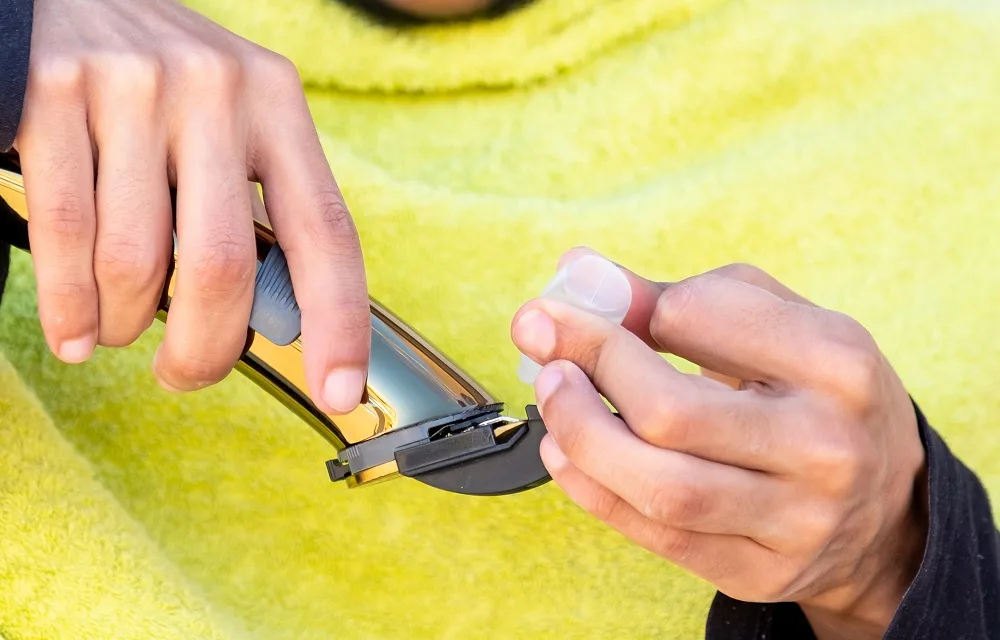
Now that you know what oil alternatives are safe and not safe for your hair clippers, you might want to know how to apply those to your tool. The general guidelines for oiling your hair clippers are as follows:
- Before applying oil, use a dry cloth to gently wipe out any stray hairs between or around the blades. You can also use an air can to spray out any loose hairs.
- Turn on the hair clipper and place one drop at the left, right, and middle of the blade. Then, tilt the clipper side to side to ensure the oil thinly coats the entire blade evenly. If you want to be thorough, you can even add a drop of oil between the blades.
- If the oil you’re using isn’t really liquidy – coconut oil, for example – you can start with the hair clipper off, then use your finger to coat the blades lightly. Then turn on the clippers and let them run for a few seconds.
- Once you’ve let the clippers run for a few seconds, turn them off, then wipe dry with a paper towel. We recommend not using an actual towel since that will only collect the oil and whatever else was in the clippers.
Depending on how often you use your hair clippers, it’s recommended you clean it after every two to three uses. But If you don’t use your hair clipper often, you have to clean it after each use to protect it from rust.
By using the above hair clipper oil alternatives, avoiding the ones that could damage the clippers, and taking proper care of your clippers, your hair tool will last a good while and keep you looking fresh!
More Related Articles:

